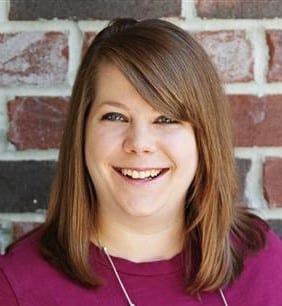Being Your Own Advocate Throughout Your Cancer Journey
Cancer patients are often advised to be their own advocate. But what does that mean? The word advocate is sometimes associated with protests, politics, and social issues. In the medical field, that couldn’t be further from the truth! Self-advocacy simply means taking an active role in your diagnosis and treatment. Your doctor provides medical knowledge and you provide your values and preferences. Together, you and your doctor form a team to create an optimal treatment plan.
Self-advocacy helps reduce anxiety and fear by empowering you and providing you with some sense of control over your diagnosis.
Tips on how to advocate for yourself:
Learn about your cancer from trustworthy websites
While your doctor is the expert, some people find it helpful to do their own research. Consider the phrase “knowledge is power.” The more informed you are, the more empowered you may feel. Just be sure the websites used are reliable, and always clarify the information with your oncologist.
We suggest getting information from the following websites:
- National Cancer Institute (NCI)
- National Comprehensive Cancer Network (NCCN)
- MedlinePlus
- American Cancer Society (ACS)
- American Society of Clinical Oncology (ASCO)
 Ask your medical team questions
Ask your medical team questions
This is your body and your treatment. Your medical team is here to answer your questions and provide all the information you need.
- As you think of them, write down questions ahead of time. Sometimes it can be hard to remember questions during the appointment.
- Take notes during your appointments, or consider asking someone to come to the appointment with you to help you take notes. It can be difficult to absorb information in the moment, so this allows you to process it later.
- Be direct and transparent with what you want. Some people want as much information as possible while others want just enough to make decisions. In order to best serve you, your medical team needs to know your preferences.
- Always mention any treatment side effects. Do not suffer in silence! There are many options to help reduce side effects, but your doctor may not discuss them unless he or she knows you are in pain. Your entire care team – including our experienced and knowledgeable pharmacy team – is here to help you and adjust your plan as needed!
Take advantage of other provided services
Illinois CancerCare provides several essential services to help ease this time for you. Proactively ask to be connected to the services you may need.
- Counseling services for individuals with a cancer diagnosis, caregivers, and/or family. Contact Kitty Bienemann, LCPC, at 309.243.3461 or kbienemann@hulthealthy.org.
- Nutrition services for individuals with a cancer diagnosis, survivors, and caregivers. For the Peoria clinic, contact Grace Hensold, RDN, at 309.243.3464 or ghensold@hulthealthy.org. For all other clinics, contact Jeanna Rich, RDN, at 309.243.3462 or jrich@hulthealthy.org.
- Social services including advance directives, transportation, and utilities. Contact Janette Murphy at 309.243.3635 or jmurphy@illinoiscancercare.com.
- Financial services are available to review treatment costs and assist with other payment options.
Connect with other people living with cancer
Living with cancer can feel isolating. Your friends and family may be supportive, but it’s likely that they won’t “get it” like someone who has had cancer. Consider these options for connecting with other people who have cancer:
- Counseling Support Groups – Part of Illinois CancerCare’s counseling services includes two support groups. One group is open to patients with all cancer types and meets via Zoom on Wednesdays from 1-3 pm. The other is open to gynecological cancer patients and meets via Zoom on Mondays from 3:30-5 pm. Contact Kitty Bienemann at 309.243.3461 or kbienemann@hulthealthy.org for an invitation.
- Imerman Angels – Matches people seeking cancer support (those with cancer and caregivers of those with cancer) with others who have experienced similar circumstances – a “mentor angel.” Call 877.274.5529 or visit imermanangels.org.
- Online Support Groups – There are a variety of free, cancer-specific online support groups. Click here for more information.
 Consider seeking a second opinion
Consider seeking a second opinion
Our oncologists at Illinois CancerCare know that some cancer patients are more comfortable receiving a second opinion for diagnosis and treatment. Some patients worry that asking for a second opinion will seem rude to their oncologist, but it is very routine. We are happy to help assist you in getting this done so you can be confident when starting out your cancer journey.
Research clinical trials
Clinical trials are research studies that test new medical approaches. They can be a great treatment option for some patients. Familiarize yourself with the clinical trials that Illinois CancerCare offers and be sure to discuss any questions with your medical team.
What if I’m uncomfortable with self-advocacy?
Some people are not assertive and may feel uncomfortable advocating for themselves. Other people may worry that their advocacy efforts will annoy their doctor and affect their quality of care. If you feel uncomfortable with self-advocacy, consider asking a loved one to help. Be specific about what you want help with. For example, ask your sister to attend appointments with you (virtually or in-person) and have her ask the questions that you wrote down ahead of time. Most friends and family members are looking for ways to help; all you have to do is ask!
The most important outcome of self-advocacy is to honor yourself. Your treatment plan should follow your own personal values and priorities, even if friends and family disagree with your decisions. By engaging in self-advocacy, you’ll be empowered with the knowledge that you and your doctor are making the best decisions for your situation.
 About the Author:
About the Author:
June Janssen, Counseling Intern for Illinois CancerCare
June was born and raised in Peoria, Illinois and received her B.A. Degree in Public Relations from Monmouth College. After spending ten years in the business world, she decided to make a career change into the counseling field. June is currently finishing her Master’s Degree in Clinical Mental Health Counseling at Bradley University and serving as a Master’s Level Counseling Intern for Illinois CancerCare through the Hult Center for Healthy Living.
“It is an honor to help patients, caregivers, and families cope with the many challenges of facing a cancer diagnosis amidst a global pandemic. The resilience that I see at Illinois CancerCare every day from both patients and staff is incredibly inspiring, and it has made me a better counselor. I am grateful to be a part of the Illinois CancerCare community and its meaningful work.”



